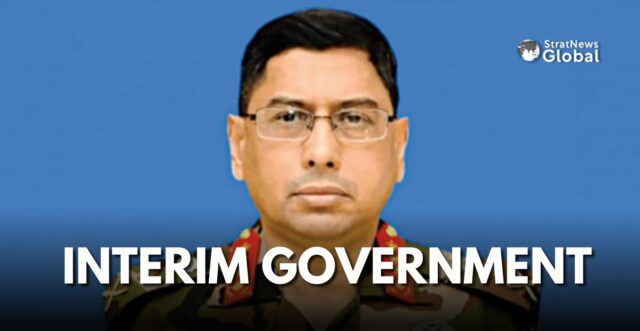Just over a month after assuming his role, Bangladesh’s army chief, General Waker-Us-Zaman, has been thrust into the spotlight by announcing the resignation of Prime Minister Sheikh Hasina, who fled the country on Monday.
Formation of Interim Government
In a televised address, General Zaman stated that after discussions with “all political parties,” it was decided to form an interim government. Although it remains unclear if the army will play a direct role, Zaman mentioned, “We will now go to the president of the country, where we will discuss the formation of the interim government, form the interim government, and manage the nation.”
Background of Unrest
Bangladesh has been engulfed by protests and violence since last month, triggered by student groups demanding the abolition of a controversial quota system in government jobs. The protests escalated into a campaign to oust Prime Minister Hasina, who had been in power for 15 years and recently secured a fourth consecutive term in January. Nearly 250 people have been killed in the violence.
General Waker-Us-Zaman’s Background
General Waker-Us-Zaman, 58, assumed his duties as army chief on June 23 for a standard three-year term. Born in Dhaka in 1966, he is married to Sarahnaz Kamalika Zaman, the daughter of General Muhammad Mustafizur Rahman, who served as army chief from 1997 to 2000.
Zaman holds a Master’s degree in Defence Studies from the National University of Bangladesh and a Master of Arts in Defence Studies from King’s College, London. Prior to becoming the army chief, he served as the Chief of General Staff for just over six months, overseeing military operations, intelligence, Bangladesh’s role in UN peacekeeping operations, and budget.
Career Highlights
In his three-and-a-half-decade-long career, General Zaman has worked closely with Prime Minister Hasina, serving as the principal staff officer at the Armed Forces Division under the Prime Minister’s Office. He has also been associated with the modernization of the army, focusing on enhancing its capabilities and efficiency.
Current Situation and Future Implications
As protests continue to rock the country, General Zaman has called upon army personnel to ensure the security of people’s lives, properties, and important state installations. The formation of an interim government marks a critical juncture in Bangladesh’s history. The political vacuum left by Hasina’s resignation could lead to further instability and power struggles, with the army playing a pivotal role in the transition.
International and Domestic Reactions
The international community is closely monitoring the situation in Bangladesh. Countries with strong ties to Bangladesh, including neighbouring India and major global powers, are responding with concern. The stability of South Asia is of significant interest to many, and the unrest in Bangladesh could have broader regional implications.
With Inputs from Reuters
Research Associate at StratNewsGlobal, A keen observer of #China and Foreign Affairs. Writer, Weibo Trends, Analyst.
Twitter: @resham_sng





